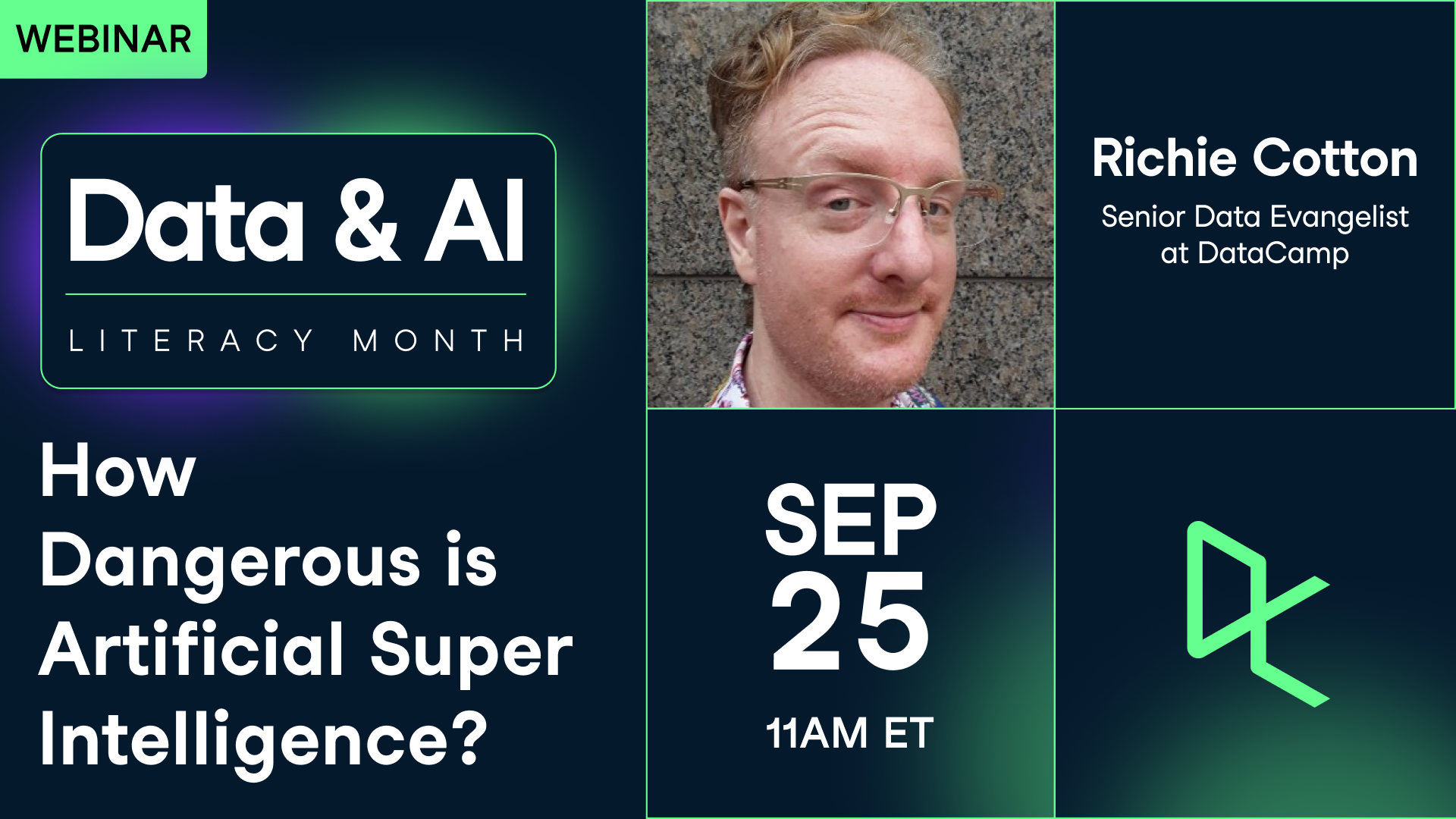Saltar al contenido principalMás información





Altavoces
¿Entrenar a 2 o más personas?
Obtenga acceso de su equipo a la biblioteca completa de DataCamp, con informes centralizados, tareas, proyectos y másRelacionado
webinar
What Leaders Need to Know About Implementing AI Responsibly
Richie interviews two world-renowned thought leaders on responsible AI. You'll learn about principles of responsible AI, the consequences of irresponsible AI, as well as best practices for implementing responsible AI throughout your organization.webinar
Empowering Government with Data & AI Literacy
Richard Davis, CDO at Ofcom, discusses how government agencies can cultivate a culture that puts data-driven decision making and the responsible use of technology at the center.webinar
What ChatGPT Enterprise Means for Your Organization
Richie Cotton, Data Evangelist at DataCamp provides an overview of the various use-cases of generative AI across different functions, and the key features of ChatGPT Enterprise.webinar
Data & AI Trends & Predictions 2024
In this webinar, Adel Nehme, VP of Media at DataCamp, and Richie Cotton, Data Evangelist at DataCamp, and co-hosts of the DataFramed podcast, will take out their crystal balls and share their data & AI trends & predictions for 2024.webinar
Data Literacy for Responsible AI
The role of data literacy as the basis for scalable, trustworthy AI governance.webinar
Artificial Intelligence for Business Leaders
We'll answer the questions about AI that you've been too afraid to ask.Join 5000+ companies and 80% of the Fortune 1000 who use DataCamp to upskill their teams.
Loved by thousands of companies

